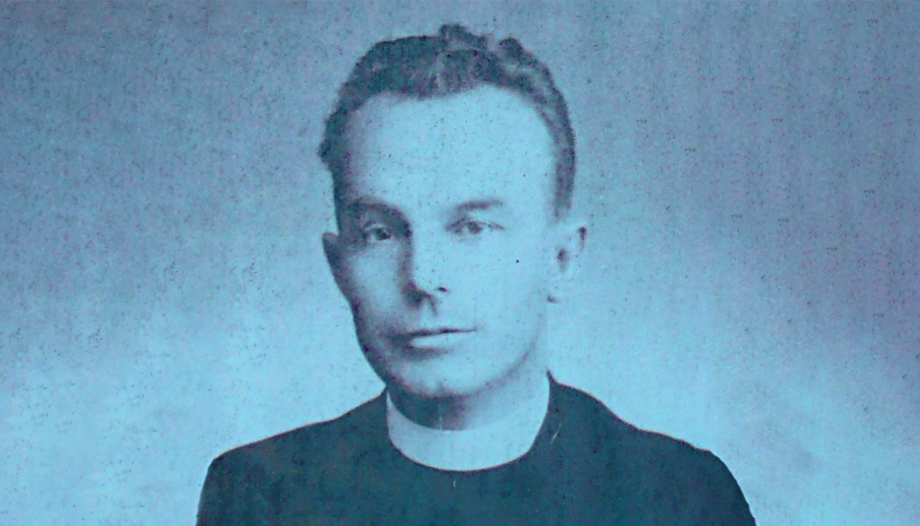The Jubilee of Hope, convoked by Pope Francis for the year 2025, continues its course. As we know, Jubilees have their origin in the Hebrew tradition and the Church convokes them to grant special graces, among them the possibility of obtaining a plenary indulgence. The Jubilee of the Youth, celebrated in Rome with the participation of Pope Leo XIV in the last days of July, has had a particular resonance.
It is early and, on the other hand, it is not possible to take stock of the spiritual fruits of a Jubilee, but for all Catholics the Jubilee of Hope is an invitation to deepen and live more fully this theological virtue.
Hope in St. Paul
St. Paul writes to the Christians of Rome: "being justified by faith, we have peace with God through our Lord Jesus Christ, through whom also we have access by faith into this grace, in which we stand and rejoice in hope of the glory of God" (Rom 5:1-2). Pope Benedict XVI, in the encyclical Spes salvi of November 30, 2007, teaches that "hope is a central word of biblical faith, to the point that, in many passages, the words faith and hope seem interchangeable. Thus, for example, in this same passage or in the Letter to the Hebrews where its author closely unites 'the fullness of faith' (10:22) with 'the firm confession of hope' (10:23)".
It can be said, therefore, that the virtue of hope requires and enriches the virtue of faith with the quality of constancy, fidelity and permanence. To live the virtue of hope would be, then, to remain firm in faith. Faith needs this fidelity and permanence because, in this life, it is subjected to trials and, on many occasions, to hard tests. The text of St. Paul to the Romans, quoted above, continues: "and not only so, but we also rejoice in tribulations, knowing that tribulation produces patience, and patience proves, and testing gives hope" (Rom 5:3-4).
In turn, this permanence in faith, which is hope, is ultimately sustained by the love of God: "hope," concludes the Apostle, "is not ashamed, because the love of God has been poured out through the Holy Spirit, who has been given to us" (Rom 5:5).
So, we can conclude, we are "saved in hope" (Rom 8:24), but a hope that is completely reliable, thanks to which we can face our present, even if it is tiring. Christian hope is reliable because it leads to a goal, because we can be sure of that goal and because this goal is so great and glorious that it justifies the effort of the journey.
We must live this hope, which is rooted in faith, with the certainty of a personal and profound conviction.
Jaccob Gapp
Jaccob Gapp was an Austrian Marianist priest and educator who was guillotined by the Nazi regime on August 13, 1943 and beatified by St. John Paul II on November 24, 1996. He was arrested by the Nazi authorities when he was in Austria, his superiors transferred him to France and, from there, to Spain, but in November 1942, during an excursion from Spain, he crossed the border into France and was arrested by the Gestapo. A book on his life has just been published in Spanish, entitled "The Gestapo".Everything passes, only heaven remains"The author and editor is Father Emilio Cárdenas.
Jaccob Grapp seems not to have had the "wood of a saint". His character was not very serene, passionate and impulsive, but his letters from prison are a splendid testimony of Christian hope. "Only heaven remains," he writes, or "one must live and express one's (Christian) convictions as stories and not as probabilities," or, finally, "I will not be able to speak to others of my hope until I have made it my own interiorly." Heinrich Himmler, head of the Gestapo, remarked that if the million members of the Nazi party were as committed as Father Gapp, Germany would conquer the world without difficulty.
Faith is "hypostasis".
This certainty is not rooted in a purely subjective conviction. The virtue of Christian hope is not only "every future," but that we already possess, in some way, "something" of the inheritance that awaits us. Benedict XVI comments on this in the encyclical "Spes salvi" number 7, exegeting the text of the Letter to the Hebrews 11:1: "faith is a guarantee of what is hoped for; proof of what is not seen". Faith is "hypostasis" of what is hoped for and proof of what is not seen. The Fathers and theologians of the Middle Ages translate the Greek word "hypostasis" with the Latin term "substance". With faith eternal life begins in us. The expected realities are already in germ in us.
Protestant translations, which have later influenced also some Catholic translations, have reduced this word "hypostasis/substance" to its subjective sense, leaving aside its objective sense. The word "hypostasis" is not only an expression of a pure inner aptitude, as a disposition of the subject, which is true, but does not do full justice to the term "hypostasis/substance". It is not only inner conviction, but also "proof", "proof", "proof". Just think, for example, of the Catholic doctrine on the Eucharist.
During the Jubilee Mass at Tor Vergata, Pope Leo XIV asked young people to "give voice to the hope that the living Jesus gives us, to the ends of the earth". May this request of the Pope be the fruit of the Jubilee 2025.







